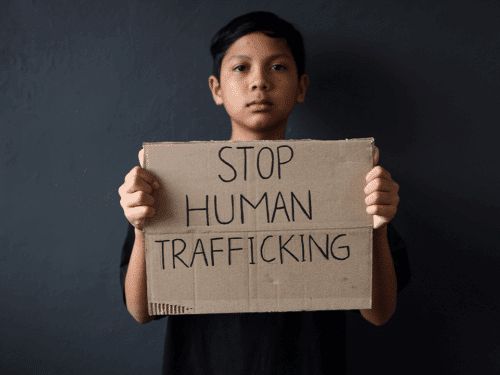Young People and Mental Health in a Changing World. Mental health issues are not luxury or exclusive problems. They are serious issues many people of all ages around the world struggle with. October 10th is World Mental Health Day 2018 and the focus this year is on young people. The World Health Organization (WHO) says there is “no health without mental health.” That is true. If you are struggling with mental health issues then they will affect your quality of life, your enjoyment of life, and your ability to perform and contribute. Therefore, mental health is something we must take seriously as a society, as a church, and as individuals.
Mental health issues are something we all have. Really. None of us is perfectly healthy. Most of us will, at some point or another in life, experience mental distress. At least 1 in 4 people will once, or several times in a lifetime, have symptoms to such an extent will qualify for a diagnosis and need treatment. 1 in 4 – that is a lot! So, if you won’t suffer from a mental illness yourself then you most likely know someone who will suffer from it. But you might not know they actually are struggling. Most cases go undetected and untreated.
So, mental health problems are not the exception; rather, we should understand them as regular problems. Mental health challenges do not afflict only ‘them’; they afflict ‘us.’ I think mental distress and illness are normal parts of being human in a sinful and broken world. We are living in a world we were not created for and that makes us hurt and struggle.
Fortunately, we are talking more about mental health and we are having some success in reducing the stigma of mental illness. Still, research and data indicate mental health problems are rising, especially among kids, teens and young adults. However, a majority are not getting help and treatment as needed. It is estimated half of all mental illness begins by the age of 14, but most cases go undetected and untreated. In terms of the burden of all kinds of disease among adolescents, depression is the third leading cause. For the population in general, depression is the leading cause of disability. Suicide is the second leading cause of death among 15-29-year-olds.
Why are so many young people struggling mentally? Is there anything in our societies, our cultures, the ways we live that make us sick? Transitions entail stress, and the transition from childhood to adulthood is a major one. It is a time where you transition into taking full charge of your own life, making small decisions in day-to-day matters and big decisions for the future. For many it is a time of moving, separating from family and friends, establishing new relationships and social networks. Though these things may be experienced as desirable and positive, they do entail significant amounts of stress, and there are many things that may go wrong.
Fundamental to maintaining good mental health is maintaining healthy, warm and nourishing relationships. Unfortunately, many today spend much more time in front of screens than in front of people. I do not want to blame the internet and social media. Rather, I see social media as something exploiting the unmet needs for connectedness that are there. A fundamental problem in many societies today is a lack of community, lack of fellowship, lack of connection. Social media is something that appeals to those needs but cannot truly fulfill them. Nothing can replace face to face interactions, looking into the eyes of a real person, truly talking and listening.
Many, young and old, experience a crisis of meaning, purpose and hope. People lack orientation, direction, reasons for living. I think these are areas were we as a church community potentially have something very valuable to offer to people in desperate need. And, not only people in the world, but people in the church desperately need this.
My dream for our church communities is they will be nice places to be, places where people can come, be accepted and embraced, where they can find a safe haven and a secure base in a harsh and tumultuous world. There is a great need for such nice places to be in our world today.
One area where we need to get our thinking straight is the tendency to confuse mental health and spiritual health. They are not one and the same. They impact one another, just as physical health, and relational and social health impact spiritual health, but they are not the same thing. We do not say that if you get cancer, diabetes or heart disease, it is because there is something wrong in your spiritual life. Some may be unbalanced and think so, but fortunately, most people realize it is not as simple as that. If someone has spiritual problems that may impact physical health negatively, but most of us would be very careful not to say that because there is a physical problem, there must also be a spiritual problem.
Unfortunately, some are a bit more confused when it comes to the relationship between spiritual health and mental health. Many do not distinguish sufficiently between the two. I have heard too many times that Adventists, suggesting that if someone is having a mental health problem, then there is a spiritual cause or at least a spiritual solution, that if one prays and reads the Bible, if one draws closer to God, if one gets rid of some sin in one’s life, then the mental problems will go away. Some go down the route of ascribing mental illness to some kind of possession.
Be very careful how you think and what you say about this. Having a mental health issue is a burden big enough as it is, and most people won’t be helped by being blamed for having a spiritual problem as well. It is too simplistic and ignorant to think there always are, or usually are, spiritual solutions to mental problems. You can have a healthy and vibrant spiritual life yet struggle with mental illness.
Again, I think that struggling with mental health problems should be seen as something normal, something that comes from living in a sinful world. No matter how spiritual you are, you won’t escape the consequences of living in a broken world. Ultimately, if Jesus does not come before that, we will all become physically ill and eventually die. Likewise, in our minds we may struggle and suffer as we go through life in this world. We need to be understanding and compassionate whenever and to whomever is experiencing pain and suffering.
What can we do increase our mental resilience?
We need resilience, the ability to withstand the attacks on our health and wellbeing. We increase our resilience when we cultivate a healthy lifestyle physically, mentally, socially and spiritually. Some of the things that may support and improve our mental resilience are:
- Sleeping 7 to 8 hours every night
- Exercising a minimum of 30 minutes 5 days a week
- Eating proper nutritious and healthy food
- Avoiding alcohol and drugs
- Setting appropriate boundaries and being temperate in all things
- Resting daily and weekly: set aside time for recreation, quietness and reflection
- Dealing properly with your thoughts and feelings; don’t run away from them or deny them
- Taking charge of our lives, living according to our values. It’s not healthy to live with internal conflicts
- Connecting with others, cultivating close, loving and supportive relationships within and beyond the family
- Practicing compassion, forgiveness, kindness and gratitude toward others, as well as ourselves
- Living for something and someone. Live your faith in God for your fellow men



